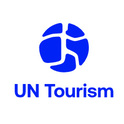INVESTOUR 2017 gathers over 20 African Ministers of Tourism in Madrid
INVESTOUR, a unique platform for tourism businesses from Africa and Europe to meet has convened more than 20 African Ministers of Tourism at FITUR, the Spanish Tourism Fair. The initiative, now in its 8th edition, has taken place on 19 January in a joint initiative of the World Tourism Organization (UNWTO) and Casa Africa.
In the last eight years, INVESTOUR has become a unique platform for exchange of information and for business opportunities in the African continent. The event has counted in its 8th edition with the participation of more than 20 Ministers of Tourism of different African countries who debated the opportunities that the sector can bring to the continent.
INVESTOUR 2017 focused on two main topics: 'Technology and design of new touristic products' and 'Capacity development for youth and women in tourism.'
"INVESTOUR has demonstrated not only the high relevance of such platforms to advance business, but also the immense potential of the tourism sector in the Africa as reflected in the very positive results that the region had in terms of international tourism in 2016" said UNWTO Secretary-General, Taleb Rifai.
"For Casa Africa is a privilege to be one of the joint partners of INVESTOUR as this event has become a major reference for African tourism investors," said the Director General of Casa Africa, Luis Padrón. "Our goal is to promote exchanges and to create a platform in which tourism professionals from both shores can meet, discuss, understand each other, and to look for ways to cooperate and to grow," he said.
As 2017 will be celebrated worldwide as the International Year of Sustainable Tourism for Development, sustainable practices have been particularly addressed by the initiatives presented at INVESTOUR.
In 2016, Africa welcomed 58 million international tourists, up 8 % from 2015. According to UNWTO's forecast, this figure will reach 134 million by 2030. The interest in tourism business in the continent has also risen. For instance, the number of Spanish companies based in sub-Saharan Africa has multiplied by seven in the last five years. As highlighted by the World Bank in 2015, the fast economic growth and the significant improvement of the business climate in Africa opens new perspectives for international companies.
Since the first edition in 2009, INVESTOUR has brought together over 1500 participants from 46 African countries and more than 900 projects have been presented. In 2016, more than 300 participants have attended INVESTOUR, including 14 Ministers of Tourism of Africa and Middle-East and numerous Spanish companies which met with more than 100 projects presented by African stakeholders
About UN Tourism
The World Tourism Organization (UN Tourism) is the United Nations agency responsible for the promotion of responsible, sustainable and universally accessible tourism.
As the leading international organization in the field of tourism, UN Tourism promotes tourism as a driver of economic growth, inclusive development and environmental sustainability and offers leadership and support to the sector in advancing knowledge and tourism policies worldwide.
Our Priorities
Mainstreaming tourism in the global agenda: Advocating the value of tourism as a driver of socio-economic growth and development, its inclusion as a priority in national and international policies and the need to create a level playing field for the sector to develop and prosper.
Promoting sustainable tourism development: Supporting sustainable tourism policies and practices: policies which make optimal use of environmental resources, respect the socio-cultural authenticity of host communities and provide socio-economic benefits for all.
Fostering knowledge, education and capacity building: Supporting countries to assess and address their needs in education and training, as well as providing networks for knowledge creation and exchange.
Improving tourism competitiveness: Improving UN Tourism Members' competitiveness through knowledge creation and exchange, human resources development and the promotion of excellence in areas such as policy planning, statistics and market trends, sustainable tourism development, marketing and promotion, product development and risk and crisis management.
Advancing tourism's contribution to poverty reduction and development: Maximizing the contribution of tourism to poverty reduction and achieving the SDGs by making tourism work as a tool for development and promoting the inclusion of tourism in the development agenda.
Building partnerships: Engaging with the private sector, regional and local tourism organizations, academia and research institutions, civil society and the UN system to build a more sustainable, responsible and competitive tourism sector.
Our Structure
Members: An intergovernmental organization, UN Tourism has 160 Member States, 6 Associate Members, 2 Observers and over 500 Affiliate Members.
Organs: The General Assembly is the supreme organ of the Organization. The Executive Council take all measures, in consultation with the Secretary-General, for the implementation of the decisions and recommendations of the General Assembly and reports to the Assembly.
Secretariat: UN Tourism headquarters are based in Madrid, Spain. The Secretariat is led by the Secretary-General and organized into departments covering issues such as sustainability, education, tourism trends and marketing, sustainable development, statistics and the Tourism Satellite Account (TSA), destination management, ethics and risk and crisis management. The Technical Cooperation and Silk Road Department carries out development projects in over 100 countries worldwide, while the Regional Departments for Africa, the Americas, Asia and the Pacific, Europe and the Middle East serve as the link between UN Tourism and its 160 Member States. The Affiliate Members Department represents UN Tourism's 500 plus Affiliate members.
Rut Gómez Sobrino
Principal Media Officer
(+34) 91 567 81 60
UN Tourism
